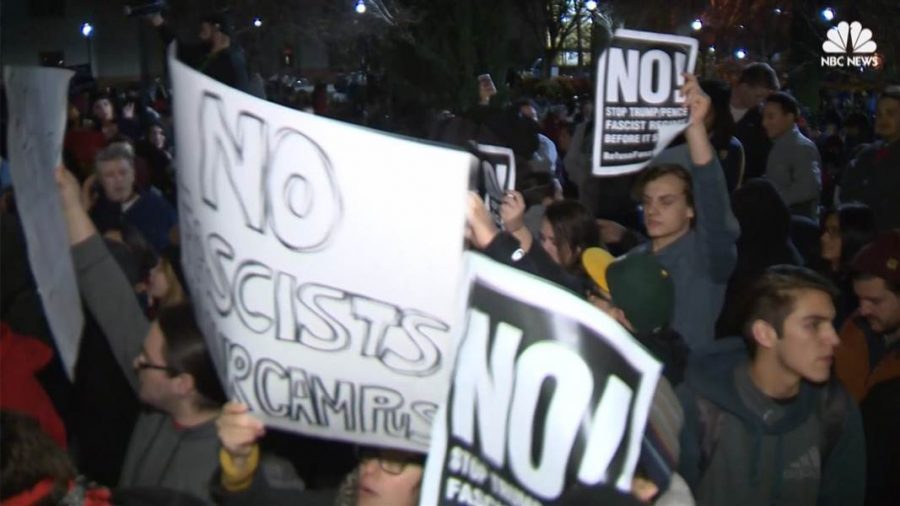The Bar-On Brief: Adversarial speech is free speech
Using the First Amendment against the First Amendment is counterproductive

Anyone can identify a problem, and anyone can amplify their objections regarding the way that problem is handled.
Anyone who peaceably assembles or organizes a protest is clearly aware of their first amendment rights. And anybody who protests is clearly aware of everyone else’s first amendment rights, namely their freedom of speech.
Over the weekend, students at the University of California, Davis protested the planned speech of alt-right spokesperson Milo Yiannopoulos, eventually causing the cancellation of the event.
It is still unclear whether Yiannopoulos and his team decided to cancel the event or whether the UC administration asked him to. However, the question that really interests me is whether the protesters intended to cancel the Yiannopoulos’ event.
If so, then there is an obvious misunderstanding of the second unalienable right: personal liberty.
Protestors can most definitely object to statements, actions or plans, but objecting to the very right of a man to speak is counterproductive.
Using an amendment to abridge a right listed in that same amendment is hypocritical, even absurd.
Disclaimer: Yiannopoulos is no saint. While Yiannopoulos is considered to be a mere spokesperson for the far-right, he has had a history of abusing his freedom of speech. In July, he was banned from Twitter for violating the site’s rules when he insulted actress Leslie Jones. Yiannopoulos also “mocked a transgender student” when speaking at the University of University of Wisconsin-Milwaukee.
There is little doubt as to Yiannopoulos’ provocativeness. But if the Davis students intended to cancel his planned talk and succeeded, they could have just set a dangerous precedent: censoring speakers with minority opinions.
The Davis protestors likely intended to shut down the event because they had no intention of hearing what Yiannopoulos, someone who probably has different beliefs from most in the Davis crowd, had to say.
But what is the point of listening to lectures that reinforce an existing point of view?
The whole purpose of discourse is to allow beliefs to be challenges and viewpoints broadened, to leave the event with a broadened and more understanding perspective. Seeking to suppress opposing viewpoints is, simply put, censorship.
It is normal to be triggered, angry or upset when someone challenges a viewpoint you see as absolute truth.
It is normal to have the desire to confront what you might see as lies and inaccurate information. But such confrontations can only take place if the opposing side is provided with a share of the stage.
Not allowing an opponent a chance to speak is cowardly. A true, civilized nation will strive by the words of Voltaire:
A civilized nation may “disapprove of what you say, but … will defend to the death your right to say it.”
Some will abuse free speech. Some will use it against you. But if we restrict such people from having it, if there is no freedom of speech for our adversaries, then there no freedom of speech at all.
And with that, I rest my case.
The Bar-On Brief is a weekly column that runs Thursdays.
Follow Shauli Bar-On on Twitter @shauli_baron












